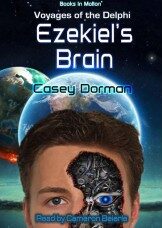Elon Musk recently sent out the alarm that, “Italy is disappearing!” No, he didn’t mean that Venice was slipping underwater, or that the Leaning Tower fell over. He was bemoaning the declining birthrate in Italy as well as in the U.S., Europe, China, Japan and within countries that contain about two-thirds of the world’s population. Only a handful of African countries continue to increase their population growth, and the world population is projected to peak and begin to decline around 2085.
Wait a minute, wasn’t increasing population a problem a few years ago? Weren’t there dire predictions about crowded living and not enough food? Didn’t everyone argue in favor of controlling birth rates? What happened?
Earlier disastrous predictions were based on the premise that the world could only hold so many people. With continued exponential population growth, there wouldn’t be enough food for everyone, crowded living conditions would produce too much climate-warming pollution and create breeding grounds for sicknesses to become pandemics. Life would become uncomfortable and even unlivable for a significant number of people. Few people worried about an aging population becoming a burden on a decreasing number of young workers. Now, this last issue has come to the forefront, and people like Elon Musk (and Xi Jinping) are saying that the only solution is to have more children.
The reality is that world hunger has increased in the last few years, despite having been on a decline before that. The reasons are wars, displaced persons, climate-disasters (droughts and floods), a global pandemic, and hoarding of resources by the rich. Some of those countries with the most population growth are also those with the most hunger. Climate change has not been curtailed or even slowed, and, if global warming predictions are correct, millions or even billions of people who live on low-lying lands will become displaced and forced to relocate to even more crowded cities at higher elevations. Finally, the world has just been through a global pandemic and did very poorly at controlling it. Dire predictions are coming true, and the size of the world’s population is a factor in producing them, even though no one points that out.
Our technology has the capacity to alleviate hunger, to reduce or even stop global warming, and to create economies and social structures that don’t depend on large numbers of young people to make them run. We don’t need to increase fertility rates to take care of our aging population, which just kicks the can down the road anyway, since those new babies will become old themselves someday. Shifting population from overpopulated, poorer regions to less populated richer regions via migration could answer some of the problems, but it would require educating the immigrants so they could take more complex jobs that won’t be taken over by automation in the near future.
Why the panic about declining population if, in fact, it’s probably a good thing? One answer is nationalism and racism. We don’t think globally, we think about our own countries, and we fear any alteration of the racial or ethnic balance that, in our minds, defines who we are (e.g., the disappearing Italians). Another answer is that we haven’t adapted our economic and social structures to accommodate the amount of automation that could be used to run our industries or help us in our personal lives. AI and Robots can do an awful lot of what humans are now doing. We haven’t figured out how to support people who work less or not at all, and we still are terrified by, instead of welcoming, the prospect of AIs or robots doing the jobs we now do.
The models for how to live with a smaller population are abundant in our science-fiction literature. There, you can find completely automated societies where the humans pursue leisure, learning, recreation and socializing and let the AIs and robots do all the work. Most futuristic societies envisioned in the sci-fi literature are planet-wide, not nationalistic. Humans are united as a race, since in a connected universe, the fate of everyone from earth is similar and we all have to meet challenges together.
A science fiction future is upon us with the explosion of developments in the field of AI and the prospect of manned visits to colonize the moon and Mars. Despite this, we still behave like a planet of primitive tribes fighting with each other for superiority. This leads us to promote futile and potentially disastrous solutions to problems such as caring for old people or producing industrial workers, with proposals to “have more babies!” Read a little sci-fi and learn to take a planetary approach that embraces technological progress and uses it to raise everyone’s lives to a higher level. Humans are one and we need to face the future as a united species.
CASEY DORMAN
Can an AI be intelligent, and if so, should we fear it? Read Casey Dorman’s novel, Ezekiel’s Brain on Amazon. Available in paperback and Kindle editions
Rather listen than read? Download the audio version of Ezekiel’s Brain from Books in Motion.
Also available from Amazon Audible: Only $6.99 or FREE with an Audible subscription. Click Here
Subscribe to Casey Dorman’s Newsletter. Click HERE






